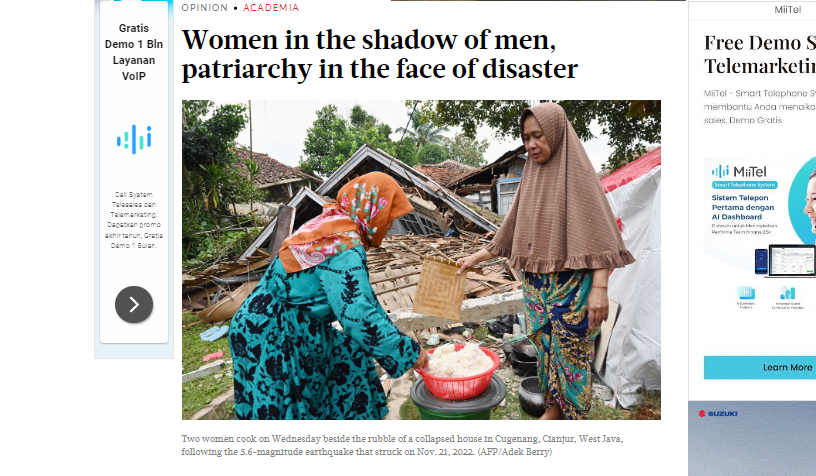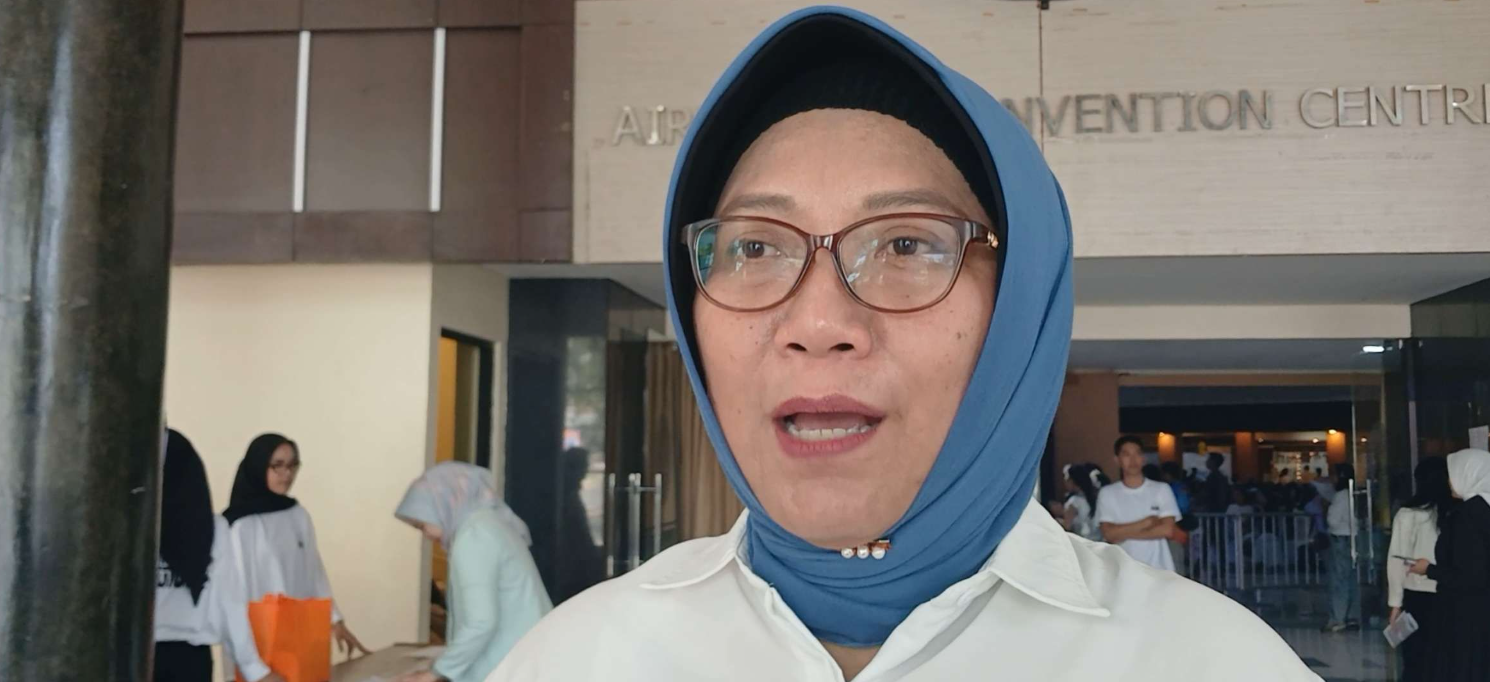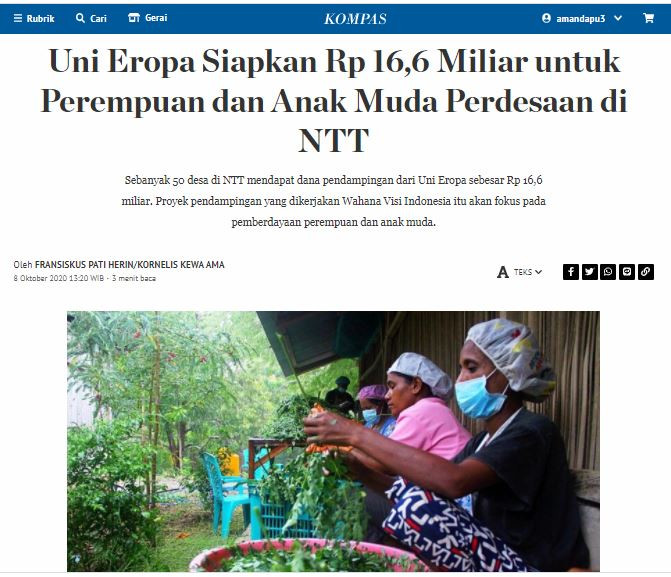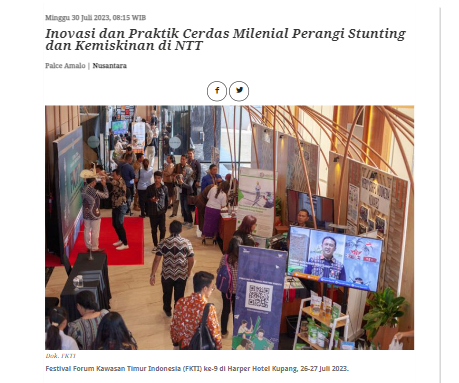Women in the shadow of men, patriarchy in the face of disaster

When a disaster strikes, it is often women, particularly mothers, who are first preoccupied with minimizing its impact at home by taking valuables, securing groceries so people do not go hungry, hugging and protecting children from harm, assisting in the preparation of food in public kitchens and much more. Unfortunately, the role of women in disasters is taken for granted, without considering that there are other roles to which women can contribute. When I attended several meetings with the Disaster Risk Reduction Forum (FPRB), I noticed that women's voices were frequently ignored. Many women chose to remain silent because they were told from the start to simply follow the decisions made in the meeting.
Ibu Yanti (not her real name), a participant in the Citizen Voice and Action (CVA) activity initiated by Wahana Visi Indonesia (WVI), is one of the female figures who is discriminated against. She is very involved in a variety of activities and was a star when she spoke to groups of all-female participants. However, when the majority of the participants in the discussion were men, including a disastertraining program held by WVI in Cikeas, West Java, the men shut down Yanti's idea. "The ladies will take care of the garbage and public kitchens, okay?" said one of the forum leaders right away, effectively closing the door on brilliant ideas from female participants. Another village chief responded immediately, "Women will follow the forum's decisions, okay?" as if all decisions were beneficial to women.
Despite disaster, patriarchal culture continues to bury women under the shadow of male dominance. Women's places are only public kitchens and waste bins. During a discussion about temporary shelters, a woman suggested gender-segregated shelters for security reasons. Several men immediately refused, claiming that they needed to sleep with their families in order to protect their wives and children. Meanwhile, in emergencies, shelters are frequently barracks or large buildings where many families sleep under one roof. This means there are some women who may be uncomfortable and vulnerable to sexual violence. The woman's suggestion was rejected. It is unfortunate that when women were attempting to reduce the potential risk of gender-based violence in refugee camps, this positive suggestion was dismissed simply because it came from women's mouths.
However, when men express a similar idea, it is not immediately rejected. Some were immediately accepted, while others were placed in the discussion forum consideration box. Should women continue to leave their voice in the hands of men, even when it comes to their safety and, in many cases, the safety of children who are under the care of women during disasters? During the disaster, there was discrimination against women's voices in decision-making in both rural and urban areas. Certain women, such as regional heads, women's customary leaders or the wives of well-known religious and traditional leaders, have their voices heard.
This situation represents a setback in the pursuit of gender equality. Women's voices are important in disaster mitigation decision-making. When disasters strike, women are frequently the ones who suffer the most. Women play numerous roles in all aspects of disaster relief, from evacuation to recovery. Furthermore, the various biological, reproductive and social experiences of women are important factors to consider when making decisions in crisis situations.
Following the 2018 earthquake in North Lombok, West Nusa Tenggara, women were involved in the process of deciding who would receive assistance with home repairs, and the results were quite significant. Even if this good practice is never recorded in data, the benefits can be enjoyed by all parties affected by the disaster. In many cases, women are more sensitive to these types of needs. Giving women a larger voice in various aspects of disaster is a must, and it has to be done. Cililitan in East Jakarta has begun Capacity and Vulnerability Analysis activities with many female facilitators. They then proceed to take action, such as determining which priorities require immediate repair in the event of a disaster.
Men cannot always represent women's voices. Women have different rights to express themselves than men. Furthermore, women have the right to decide how to deal with the consequences of disasters that have occurred in their lives. Women's and men's disaster experiences are undoubtedly very different. Men do not experience menstruation, pregnancy, giving birth or breastfeeding, so their sensitivity to these things is understandably different. Not to mention, in a patriarchal culture, women are conditioned to be helpers, so it appears that caring for disaster victims automatically falls on women's shoulders. This should be our collective thought.
Adelina R. Simatupang, Emergency Response Specialist – Wahana Visi Indonesia
This article was published: https://www.thejakartapost.com/opinion/2023/02/22/women-in-the-shadow-of-men-patriarchy-in-the-face-of-disaster.html



